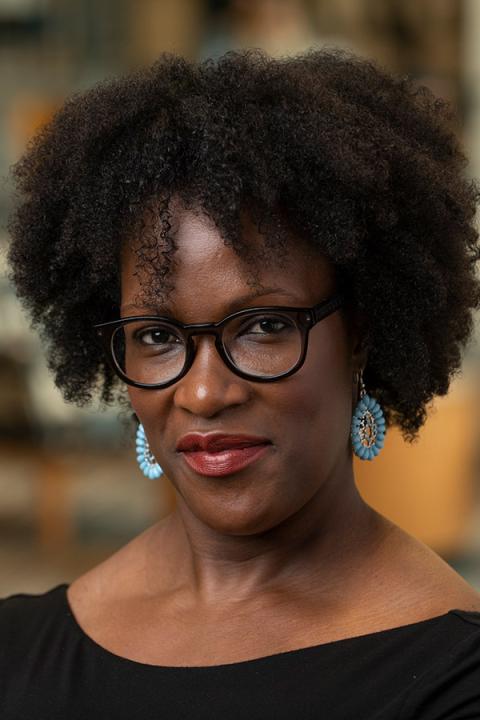What is medical humanities, society and ethics?
Health and illness are deeply personal experiences. At one time or another, we all get sick or serve as caregivers, and interact with a complex medical system. In the medical humanities, society and ethics minor program, you’ll learn to use humanities and social science methods to critically examine how we make meaning from these experiences and to recognize that we all operate within social, cultural and historical contexts. You’ll study the origins and nature of beliefs and values about illness and health as well as those embedded in society’s social, cultural, educational, legal and political institutions.
Why study medical humanities, society and ethics at UNH?
The medical humanities, society and ethics minor at UNH is explicitly interdisciplinary, meaning it integrates methods and viewpoints from multiple fields to produce new knowledge, insight and critical thinking on health and illness. The robust program faculty has expertise in health and illness across historical periods and around the globe. The minor is designed to enrich and supplement the education of those who wish to pursue professions in healthcare, economics, ethics, education, policy and government.
Potential Career Areas
- Doctor, nurse or other healthcare professional
- Behavioral or mental health professional
- Biomedical scientist or technologist
- Educator
- Government and nongovernmental organization professional
- Public health policymaker
Curriculum & Requirements
As an interdisciplinary minor, medical humanities, society and ethics (MHSE) teaches students to use methods from the humanities and social sciences to examine issues related to illness, health, healthcare, the body and the mind in their social, cultural and historical contexts.
MHSE takes as its starting point the dual claim that the central human experiences of health and illness as well as the systems of knowledge that have emerged to classify them are culturally shaped phenomena. Bodies and minds experience illness; people suffer; they age; they die. But the meanings people attach to these processes are not givens in the natural world. They are rather forged within a particular society’s attitudes, values, beliefs and practices expressed through language, behavior, ritual and art. They are, moreover, contingent on time and place. Even the modern scientific discipline of medicine, its truth claims, and its terms are embedded in historical cultural domains. They have as much to do with attitudes to gender, race, socioeconomic status, relations of power, structures of authority and social hierarchies as they do with biology.
MHSE aims to bridge the gulf that exists between science and experience, biology and culture by challenging students to examine critically the origins and nature of their beliefs and values about illness and health as well as the beliefs and values embedded in their society’s social, cultural, educational, legal and political institutions.
MHSE students will learn that humanistic interpretive practices make cross-cultural and comparative studies of health and illness possible. The minor encourages students to take a broad community and global perspective on experiences of health and illness that address equity, policy and resource allocation.
Academic policies related to Minors.
Students are required to take five courses (20 credits) selected from the approved list of courses below. Other courses may be taken that are approved by the minor advisory committee through a petition process. Independent studies, practica and transfer credits may also count for the minor with the approval of the committee.
- At least 4 credits must be at the 600 or 700-level.
- No more than 12 credits may be taken from the same department.
- At least 12 credits must be taken in residence at UNH.
- No more than 4 credits may be taken from courses outside of the College of Liberal Arts.
- Students must receive a grade of C- or better for courses to count toward the minor requirements.
- Once students have declared the minor, they are required to meet with the coordinator or appropriate core faculty advisor at least once per year for regular review and assessment of their program, learning outcomes and progress.
| Code | Title | Credits |
|---|---|---|
| Approved Courses | ||
| ANTH 525 | Anthropology of the Body: Fat, Fitness and Form | 4 |
| ANTH 610 | Medical Anthropology: Illness and Healing | 4 |
| ANTH 685 | Gender, Sexuality and HIV/AIDS in Africa | 4 |
| CLAS 550C | Identities and Difference in the Ancient World: Sex and Desire in Greece and Rome | 4 |
| ENGL 415C | Literature and Medicine | 4 |
| ENGL 787 | English Major Seminar (Only topic: Literature and Medicine) | 4 |
| GERM 798 | Special Studies in German Language and Literature (Only topic: Narrating Madness in German Literature) | 4 |
| HIST 437H | Honors/The Mad Among Us: A Global History of Mental Disorder | 4 |
| HIST 498 | Explorations of Historical Perspectives (Only topics: Pandemic! From the Black Death to Coronavirus or Childhood in Global History) | 4 |
| HIST 500 | Introduction to Historical Thinking (Only topic: Landscape, Environment and Disease) | 4 |
| HUMA 526 | Humanities and Science (Only topics: The Undead Humanities and Cognitive Science of Religion) | 4 |
| PHIL 410 | Happiness, Well-Being , and a Good Life | 4 |
| PHIL 424 | The Future of Humanity: Science, Technology, and Society | 4 |
| PHIL 440B | Honors/Who's Human Now? | 4 |
| PHIL 447 | A.I., Robots, and People | 4 |
| PHIL 630 | Neuroscience and Philosophy | 4 |
| PHIL 660 | Law, Medicine, and Ethics | 4 |
| PHP 908 | Public Health Ethics (undergrads allowed with special permission) | 3 |
| PSYC 531 | Psychobiology | 4 |
| PSYC 733 | Drugs and Behavior | 4 |
| PSYC 736 | Attention Disorders | 4 |
| SOC 570 | Sexual Behavior | 4 |
| SOC 620 | Drugs and Society | 4 |
| SOC 625 | Mental Health and Society | 4 |
| SOC 635W | Medical Sociology | 4 |
| SOC 788 | Advanced Medical Sociology | 4 |
Explore Program Details
JTerm 2025 Courses
HIST 435 – Global History of Childhood and Youth
PHIL 424 – The Future of Humanity: Science, Technology, & Society
Spring 2025 Courses
ANTH 625 – Sexuality in Cross-Cultural Perspectives
ANTH 660 – Human Osteology
BMS 730 - Ethical Issues in Biomedical Science
HIST 797 – Medicine & Society: Sickness, Health, & Healing from the Ancient World to the Present
HMP 401 - United States Health Systems
HMP 403 - Intro to Public Health
HMP 501 - Epidemiology and Community
NURS 450 – Making Babies: Technology, Nature, & Social Context
NURS 535 – Death & Dying
NURS 450 – Making Babies: Technology, Nature, & Social Context
NURS 535 – Death & Dying
PHIL 424 – The Future of Humanity: Science, Technology, & Society
OT 610 - Occupation, Identity, and Disability
OT 685 - Physical Disorders and Everyday Life PSYC 531 - Psychobiology
PSYC 722 - Behaviorism, Culture, and Contemporary Society
PSYC 755 - Psychology and Law
PSYC 756 - Psychology of Crime and Justice
SOC 635 – Medical Sociology
SOC 720 Sociology of Drug Use
-
ProfessorProgram Coordinator of Africana StudiesEmail: Casey.Golomski@unh.eduPhone: (603) 862-1864
-
Senior LecturerCore Faculty in Women's StudiesEmail: Charli.Valdez@unh.edu






















